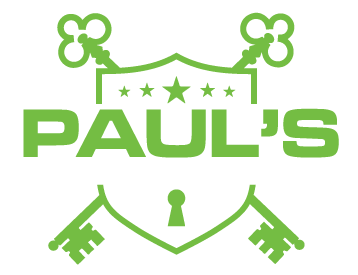If you search "locksmith" or "emergency locksmith" in your area you may be surprised to see dozens of listings close by, but if you call a few you will quickly find out that many don't exist at the physical location they advertise. If you keep calling numbers you may also realize that you're often talking to the same person even though you're calling different numbers for what appear to be different companies.
In the state of California any company or individual who is providing locksmith services you must be licensed. To be licensed in California you and your company must be registered with the Bureau of Security and Investigative Services and submit to a federal criminal background check.
Unfortunately many people in California perform locksmith services without a license. These locksmiths are known for quoting very low prices over the phone, providing low quality, excessive, and often incomplete services, and charging as much as 10x what they originally quoted. This problem is not localized to California or even the United States. Scam locksmiths are a worldwide problem.
From Wikipedia:
 "The locksmith scam is a multi-faceted scam, targeting people who call a locksmith out of desperation, usually because of being locked out of their car or premises. Locksmith scams have been reported in the U.S. and New Zealand.
"The locksmith scam is a multi-faceted scam, targeting people who call a locksmith out of desperation, usually because of being locked out of their car or premises. Locksmith scams have been reported in the U.S. and New Zealand.
The scams work by flooding business-finding services with a multitude of faux business listings. All of the phone numbers of these listings eventually link back to a single operation, usually without a legitimate address or license. The descriptions will be similar to legitimate locksmiths, accompanied by similarly misleading advertising, and usually quoting an unusually low price. The person who turns up may perform shoddy work and then overcharge for the service and parts. Since the customer never knows the real business or people involved, at best they can ask for a single phony listing to be removed - a process that takes time and does not negatively impact the scammer much, as they can simply create more fake listings.
Side-effects of the scam include damage to legitimate locksmiths who lose business and tend to get angry calls from people believing them to be responsible. Google Maps has been particularly vulnerable to this operation in the 2010s. It began requiring people advertising locksmith services in the US or Canada to complete its "Advanced Verification" process as of 2018, but does not do so in other markets...
...Google says that it has removed billions of advertisements that violated its policies, and to have improved its verification systems to combat listings fraud. However, although Google now requires people advertising locksmith services in the US or Canada to complete its "Advanced Verification" process, it does not do so in other markets. Also, Google has reportedly resisted removing fraudulent listings."
A quick search of the term "fraud locksmith" will reveal 1000s of articles and stories. Here are just a few pieces of news from 2019 and 2020:
